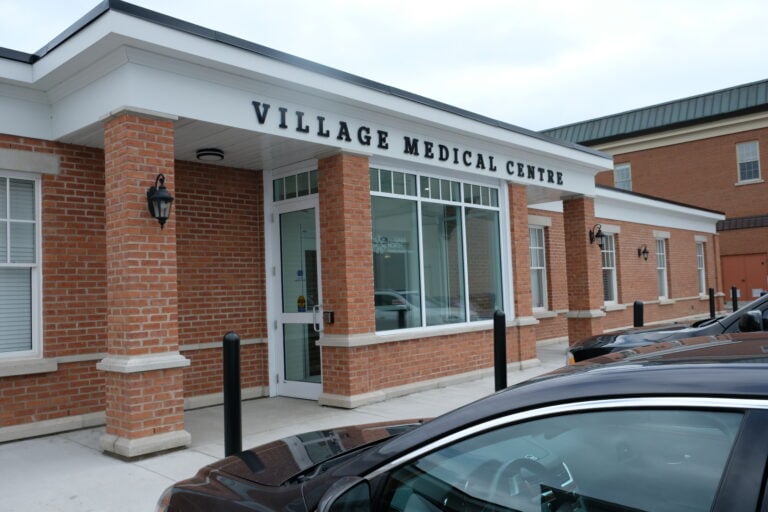If Ontario goes back into lockdown, it likely will apply only to people who are unvaccinated, says Niagara's chief medical officer of health Dr. Mustafa Hirji.
While it would be an unprecedented move for Canadians, it's the best way to stop the negative impacts on the economy, while also “rewarding” people who have done their part to protect their neighbours by getting the jab, Hirji told a media conference Monday.
“I think there's an opportunity that we don't need to go to a lockdown this time, at least not a lockdown for everybody, but rather a lockdown just for the unvaccinated people, because overwhelmingly the infection is spreading amongst them,” Hirji said.
“If you excluded them from all the social activities — to go into restaurants, to go into the mall, all of that — the risk of infection spreading actually falls very sharply,” he said.
If unvaccinated people were barred from those social activities businesses would be able to continue catering to vaccinated people, he said.
“That would be much less economic harm to them and I think it would at least reward the people who have taken the effort to get vaccinated.”
Hirji's concerns come after a rise in cases in the past month and predictions from the Ontario Science Advisory Table that show cases could spike as a result of the Delta variant.
It's feared the higher number of cases could lead to more hospitalizations and could once again overwhelm the province's health care system.
He urged people to get the shot noting those who are unvaccinated are nine times more likely to get COVID and 21 times more likely to be hospitalized with serious symptoms if they do get sick.
“So, even more stark than your risk of being a case, is your risk of being hospitalized if you did get COVID-19 goes far higher if you remain unvaccinated,” he said.
Unvaccinated people are “a big part of the story of why we're seeing a surge of COVID-19. There's still enough people there for COVID to spread and lead to lots and lots of cases.”
While there's still time before hospitalizations hit the level seen at the height of the second or third waves, it's something that needs to be addressed before it gets to that point, Hirji said.
One hinging factor is having a provincial vaccine credential or so-called passport, so there's an easy way to validate if someone is vaccinated. He said there needs to be a way to make it easy for businesses to tell who they can and can't serve.
“I think we need that provincial vaccine credential to make it really easy for business, if that kind of rule does come down, that they're able to say that this person has been vaccinated we can serve them, versus not vaccinated, we can't serve them,” he said.
Having vaccine passports could help avoid another lockdown, he added. “And then if we do start to see the hospital system impacted overwhelmingly, because we can't get vaccination rates high enough, we start to put restrictions on unvaccinated people.”
While Hirji said he doesn't want to have to get to that point, and hopes more people will get vaccinated, he said that's likely to be the outcome.
With everything being opened up, it's nearly impossible to slow the spread of cases and prevent hospitalizations unless more people get vaccinated, he said. However since most cases are coming from unvaccinated people, he said restrictions should be limited to just that group.
If more people don't get vaccinated, “the government is going to be forced to bring in restrictions, hopefully just on unvaccinated people to minimize the harm to the economy, break off the spread of infection and ensure our hospitals don't get overwhelmed. I don't think there is going to be really any other possibility,” he said.
“If people are unvaccinated, they should take note of this because now's the opportunity to make sure you get vaccinated, so if the government does go down this road, they're not all of a sudden excluded from attending some of these settings,” he said.
He said while there's an “extremely low appetite” for another lockdown, if hospitalizations get out of control, the government's hand would be “forced to act.”
Right now all of Niagara's cases are due to the Delta variant and are tied to the Step 2 reopening that began on June 30, Hirji said.
“I think if we've followed the provincial framework correctly we could have gone through Step 2, seen cases were maybe slightly going up, had an opportunity there to step in and address it before we went to Step 3, but the province rushed ahead with Step 3 before we had even seen the effect of Step 2,” Hirji noted.
The province was “a bit impatient about reopening,” which led to the resurgence in cases, he said.
Data shows the number of people staying home is at its lowest since before the pandemic began before March 14, 2020, while the number of people out shopping is higher than it was before the start of the pandemic, he said.



.jpg)







